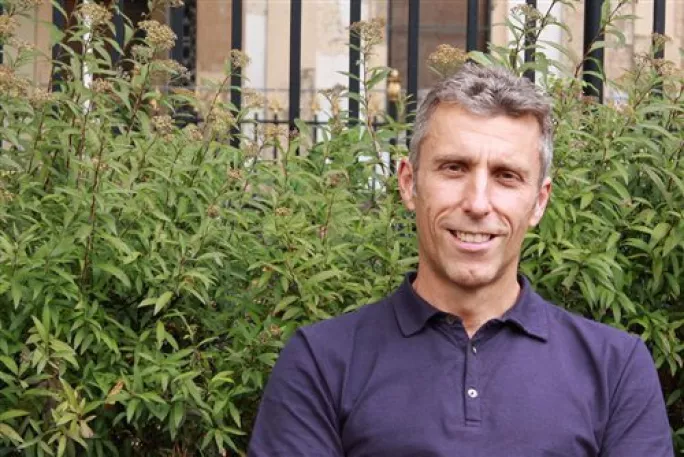‘It’s hard to remain optimistic about the future of adult learning.’
David Hughes, chief executive of the National Institute of Adult and Continuing Education (Niace), writes:
It was hard at times during Adult Learners’ Week to remain optimistic about the future of learning and skills for adults.
My emotions always run high during the week because of the inspiring award winners I meet along with their proud families and friends and I was not disappointed this year. I met many truly exceptional award winners who have shown great courage to get on through learning. They are beneficiaries of a learning and skills system which works for thousands of people and we should continue to applaud and celebrate that. That is a key part of Adult Learners’ Week and we did the celebrating in some style this year.
But all through the Week, I kept musing on how many missed opportunities there are and how many more people will not access the learning which they need and want as a result of the increasing funding pressures.
Many employers are reporting skills shortages even though the economy is just starting to recover. Government funding for learning for those aged over 24 has reduced significantly in recent years, as has investment in training. At the same time, the number of jobs needing new recruits in the next decade is around 13.5 million against only 7 million young people entering the labour market. The gap can only be filled by higher labour market participation, longer working lives and immigration; all needing a skills offer which is currently absent. Meanwhile, the ageing population puts increasing pressure on health, welfare, care and pensions costs.
Those stark facts set this up as potentially all negative, but it was a great boost to see many examples of learners, projects and employers all seizing the opportunities of an ageing population. I met older learners given a chance to work again in their 50s after years of health-related unemployment; mothers finding work and inspiring their children through family learning; employers supporting their staff to train and be more productive. The danger is, though, that these examples become the exception rather than the norm.
That’s why we launched our general election manifesto as part of Adult Learners’ Week - we wanted to capture the positive spirit and optimism of the Week and the people, and focus them on the challenges of the future. Our fundamental challenge, set out in more detail in the manifesto, is that the current learning and skills system will not deliver the lifelong learning society we need and that the economy will falter unless we make radical changes. Too many adults will miss out on learning which could help them in life and work.
At our policy conference we had responses to this challenge and our manifesto from the three main Whitehall political parties as well as from FE, HE and the LEP network. There was a strong consensus that we do need to make changes, that the focus on full qualifications as entry-routes for (mainly) young people into the labour market is not sufficient, that the ageing population offers opportunities as well as threats. There was great interest in our proposal for a high-profile and independent review into learning and skills along the same lines as recent reviews into pensions (Turner) and adult social care (Dilnot).
Perhaps this indicates that we are at a turning point on learning and skills? Maybe there is a recognition that tinkering around with the components of the current system is not enough? Our manifesto set out our vision for a lifelong learning society which empowers every adult to take more control of their own learning, incentivising and supporting all of us to make sound investments in our learning, much as we would hope people do for their pensions or savings. To support this we need employers to play their part as well as the state to invest in those most disadvantaged.
To be clear, there are lots of good things happening and positive changes, but we are going backwards in learning opportunities just at the moment when we need to be doing more. We need a public debate about the future of work and skills across the UK, with all-party engagement because the demographics are profoundly challenging. A review would need to focus on the opportunities of ageing and for a new approach to later life. Skilled people staying in productive work with decent wages, able to reduce hours, change career, fit in caring and volunteering, blurring the line between work and retirement has to be a part of our future, but that requires more people to have both informal and formal opportunities to learn. We have not got the mechanisms, funding, learning providers, or leadership to help us achieve that. A review could provide the leadership and open up the debate.
I will remain firmly on the fence between optimism and gloom for a while yet. Learning can be so inspiring and rewarding and I am committed to fighting for a better system to help our truly exceptional Adult Learners’ Week award winners be followed by thousands more like them.
Keep reading for just £1 per month
You've reached your limit of free articles this month. Subscribe for £1 per month for three months and get:
- Unlimited access to all Tes magazine content
- Exclusive subscriber-only stories
- Award-winning email newsletters




